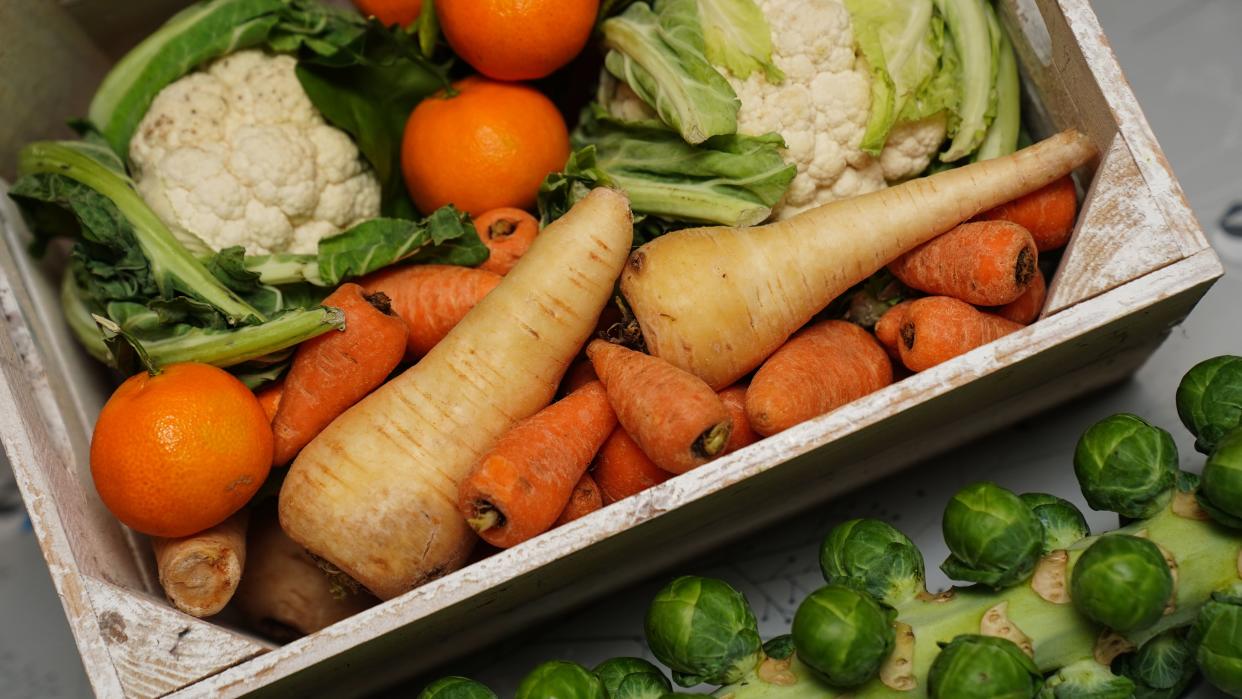Plant-based diet ‘linked to better sexual health in men with prostate cancer’

A plant-based diet may be linked to improved sexual health in men treated for prostate cancer, new research suggests.
According to the findings, eating less meat and dairy, but having more fruit, vegetables, grains and nuts is associated with a reduction in the common side effects seen in prostate cancer patients, including erectile dysfunction, and loss of bladder control.
Researchers say the findings offer hope to those wanting to improve their quality of life with a simple change after undergoing treatment for the condition.
They also challenge the misconception that eating meat boosts sexual function in men, the experts suggest.
Study lead author and urologist Stacy Loeb, a professor in the departments of urology and population health at NYU Langone Health, US, said: “Our findings offer hope for those looking for ways to improve their quality of life after undergoing surgery, radiation and other common therapies for prostate cancer, which can cause significant side effects.
“Adding more fruits and vegetables to their diet, while reducing meat and dairy, is a simple step that patients can take.”
She added: “These results add to the long list of health and environmental benefits of eating more plants and fewer animal products.
“They also clearly challenge the historical misconception that eating meat boosts sexual function in men, when in fact the opposite seems to be the case.”
The study found that men who ate the most plant-based products scored better in measures of sexual function compared with the group that consumed the least.
The results also revealed better scores for urinary health, with fewer instances of incontinence, obstruction and irritation.
Additionally, hormone health scores – which assess symptoms such as low energy and depression – were better among those whose diet was the most plant-based diet compared with the lowest.
Led by researchers at NYU Grossman School of Medicine and Harvard T H Chan School of Public Health, the analysis looked at more than 3,500 men with prostate cancer.
Patients were put into five groups based on the proportion of plant versus animal foods the men said they ate.
For the new study, published in the Cancer journal, the team analysed data from the Health Professionals Follow-Up Study, an ongoing investigation begun in 1986 and sponsored by Harvard Chan School in the US.
As part of the project, mostly white men with prostate cancer answered a questionnaire every four years about the kinds of foods they ate and in what proportions.
Another survey, which took place every two years, assessed frequency of incontinence, difficulties maintaining an erection, and problems with bowels, energy and mood, among many other health concerns.
Most of the patients (more than 83%) had received prostate cancer treatment.
Among the findings, the researchers say, eating high amounts of any plant-based food was linked to better sexual health, urinary health and vitality scores, regardless of lifestyle differences, or history of other medical issues such as diabetes.
According to Prostate Cancer UK, more than 52,000 men are diagnosed with prostate cancer every year on average – 144 men every day.
The disease has come under the spotlight in recent weeks, after Buckingham Palace announced that King Charles would be undergoing treatment for an enlarged prostate, which is not cancer.
Shortly afterwards it was announced that he had been diagnosed with cancer after a “separate issue of concern was noted” during treatment for his benign prostate condition.
Since the King’s prostate condition was revealed, cancer charities and the NHS reported surges in the number of people looking for information on both an enlarged prostate and prostate cancer.


